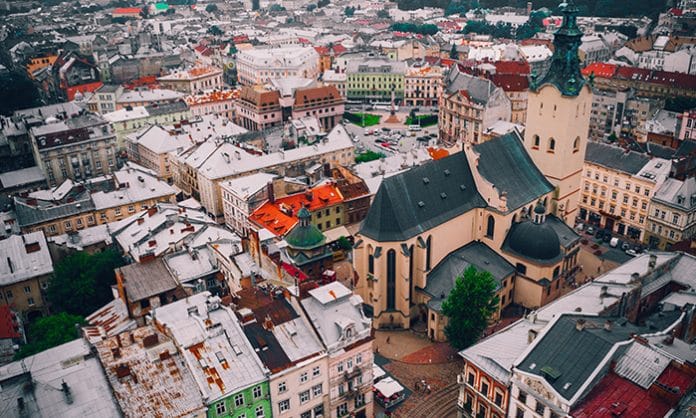Welcome Sara and Waqar!
Where are you from?
Sara: Italy
Waqar: Pakistan
Where do you currently live and what countries have you lived in together?
We live and have always lived together in London.
How did you meet? (And please give us the good, long story with all the details! Don’t skimp on the details!)
Sara: We met at work. Waqar interviewed me for a job and was my manager for about a year! When he moved on, the whole team stayed in touch with him and became friends, and things developed from there, even though we didn’t tell any of the others at first for quite a few months!
We had three weddings spread across seven months: the religious ceremony, the civil wedding and more celebrations in Italy, and I got to wear Asian traditional clothes and beautiful colours
How old are your children and where were they born?
Our boys are nearly five and nearly two, and they were both born in London.
What passports do you and the kids hold?
British.
What languages do you each speak and what language do you speak together?
Sara: Italian and English.
Waqar: Urdu and English.
We always speak English together.
In what languages do you speak to the kids?
Sara: I always speak to the children in Italian (bar a few occasions when, in front of others, I say something in English to make sure the people around me understand, but I really try and limit that).
Waqar: I try to speak to the boys in Urdu, but English tends to be more natural for me. When our oldest one was little I used to speak Urdu to him. When he started talking though I switched to English, using some of the Italian words he used the most. With my second one, I still try and speak more Urdu, and I think he understands. I try and read to him in Urdu as well (translating from English books).
What languages do the kids speak?
Sara: Our oldest boy speaks fluent English and Italian. Our little one is not very vocal yet, but he understands English, Italian and Urdu and uses some words from the three languages, depending on what he finds easier to pronounce. Where he can say the same thing in both languages he doesn’t always pick ‘the right language for the right person’, but he’s definitely showing signs of being able to do that.
How do you reinforce the languages beyond just the parents speaking it?
Sara: I take the boys to Italy and spend time with my parents, friends and relatives as much as I can. We are lucky to have some family and friends who live near us, so for my boys Italian is not just spoken with me or when in Italy. One of the key workers at the nursery that our children attend is Italian, and I encourage him to speak to the boys in Italian whenever he can too. When I read to them, regardless of where we are, it’s always in Italian (I translate on the go), and where I can, I try and let my oldest one watch DVDs in Italian too. Every interaction I have with them is in Italian.
Waqar: Reading books to them and spending time with my family, who also speak Urdu.
Why is raising bilingual/trilingual kids important to you?
Sara: For me it’s really important that my children speak Italian as it’s my mother tongue and part of my culture and who I am. Also, it would be very sad if my children couldn’t communicate with my parents and the rest of my family, so I’m doing everything I can to give them access to the language and culture that I was brought up with.
Waqar: I believe it gives them a better start in life. Hopefully the early exposure to other languages will make it easier for them to learn more foreign languages later in life.
Do you have any advice for parents raising multilingual kids on what works and what doesn’t?
Sara: Every child is different, and I’ve met many families where the parents are adopting the same behaviours and techniques with their children, but different children absorb the language to various degrees (some will speak it fluently and others will understand but still chose to respond in the majority language). What I think is key is to be consistent. What I’ve noticed with my eldest is that he will mirror what we do. If I let English words slip into my sentences, he will do the same when he struggles to find the Italian equivalent. If I always speak Italian no matter what, he will always respond back in Italian. Waqar uses English with a few words of Italian that he has picked up from me, and our oldest does the same with him. Let the children associate one language to one person at least or with a place (for example the home) if both parents speak the same language.
Waqar: The best piece of advice I could give is to be consistent; also, help the children by surrounding them with the minority language, inside as well as outside the home.
What religion are you raising the kids?
Sara: Islam is the main religion of our family, and the boys are being raised as Muslims.
What are some of your family’s favorite things to eat?
Sara: The boys’ absolute favourite is fried chicken and chips! We like Italian cooking (from Sara’s mum!) and Pakistani cooking (from our talented sister-in-law). Curries and Mexican food are often on the menu for us.
What’s the best place you’ve been on vacation with your kids?
Sara: On a cruise around the Mediterranean, Italy (I would say that!), Morocco (Agadir).
What are a few of your child’s favorite books?
Sara: The Gruffalo and The Gruffalo’s Child by Julia Donaldson, Peak in my Pocket, Disney’s Cars, Thomas the Tank Engine and generally books on trains, emergency vehicles and dinosaurs!
What are some of your biggest cultural differences (if applicable)?
Sara: Looking at us now I’d say that we actually don’t have huge cultural differences. Both of us were raised with a big focus on family and are close to our parents and siblings. Initially, becoming part of Waqar’s family meant that I had to understand a lot more about Islam as his family’s culture is pretty much built around Islamic principles, but it wasn’t difficult for me, as I love to learn! Probably the biggest difference and change, years ago, was my choice to stop eating pork and only eat halal meat, and I’m lucky that my parents have been supportive and understanding of this. Another change for me has been the fact that whenever we go to weddings or any particular social functions with Waqar’s side of the family I dress in the traditional shalwar kameez – that was completely new for me, but it’s a nice change that a woman can get easily get used to, as it means an extra set of pretty clothes, bangles and colourful jewelry to have in the wardrobe!
Waqar: Language! And the fact that pork (especially in the form of cured meat) is an integral part of everyday meals in the region Sara is from.
What have been your greatest challenges as an intercultural family?
Sara: I don’t think we had any particular challenges. We thought we’d raise some eyebrows when we announced that we were getting married, but beside the initial surprise everyone’s been very supportive and welcoming on either side of the family (and extended family) and community. I certainly ‘blend in’ very easily now, and love how often acquaintances of Waqar’s family who don’t necessarily know I’m Italian, will just assume I’m also Pakistani and will address me in Urdu!
Waqar: Language has been a barrier for me, especially at the beginning as Sara’s parents don’t speak much English, and I didn’t speak Italian at all.
What have been your greatest joys as an intercultural family?
Sara and Waqar: We bring together two different worlds – we come from places so far apart and yet we show that we’re not that different after all. As a family (like everyone, I presume) we have our own little sayings and phrases, made up with a mixture of three languages. There are things we’ll always refer to in Italian and others that we’ll always refer to in Urdu, for example—we almost have our own little ‘home language’, and our families have picked up some new words too, especially from the children!
Anything else you would like to add?
Sara: Maybe living in London, which is full of families in similar situations, makes it all a lot easier! I love that my children can go to nursery in a place where the nursery teachers speak a variety of different languages, including Italian and Urdu / Hindi. I think this makes both languages become very relevant, current, and ‘real’ – they’re not just the languages we use at home or with the grandparents but also in various settings in our everyday lives here in London.
Thank you Sara and Waqar!





































so soooooooooooooooooooooooooooooooooo bad very baaaaaaaaaaaaaaaaaaaaaad